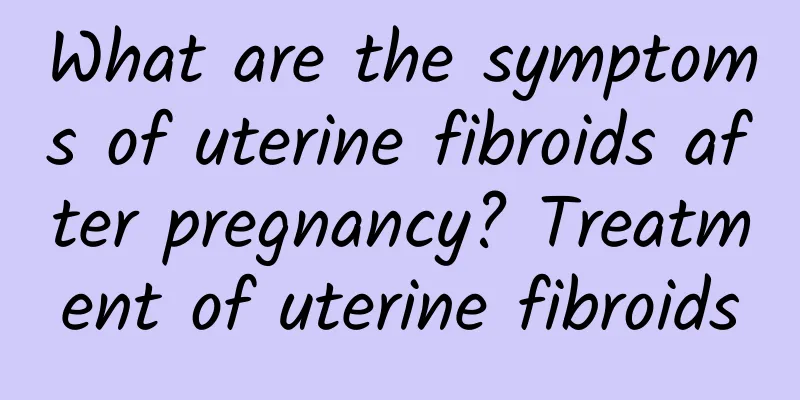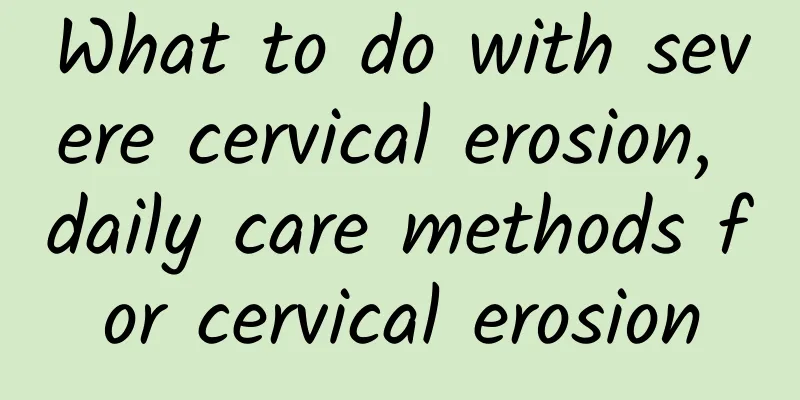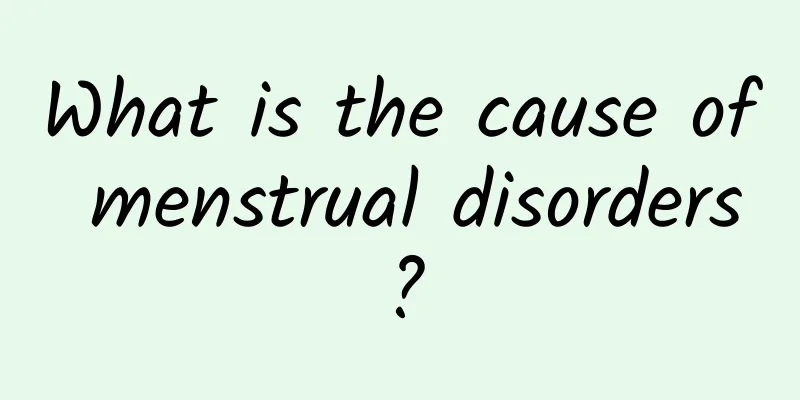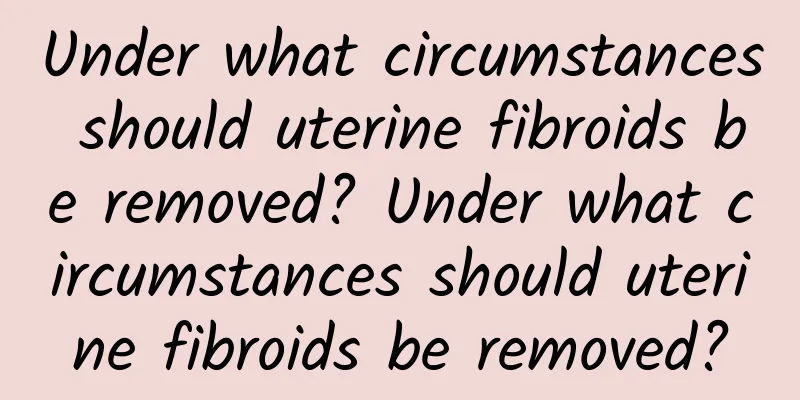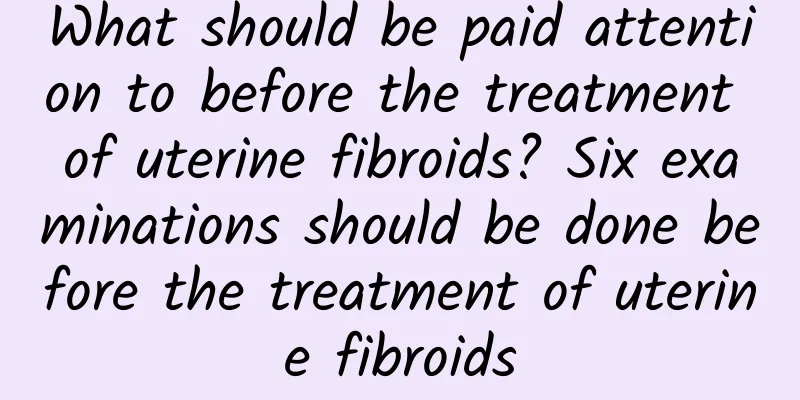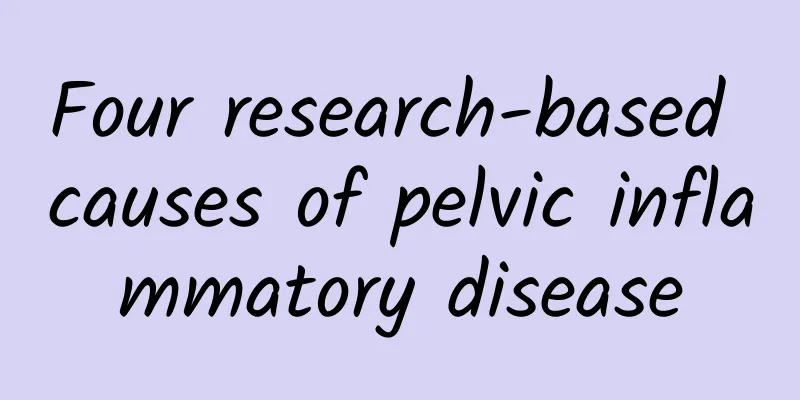What is the health care treatment of uterine fibroids? Daily health care of uterine fibroids
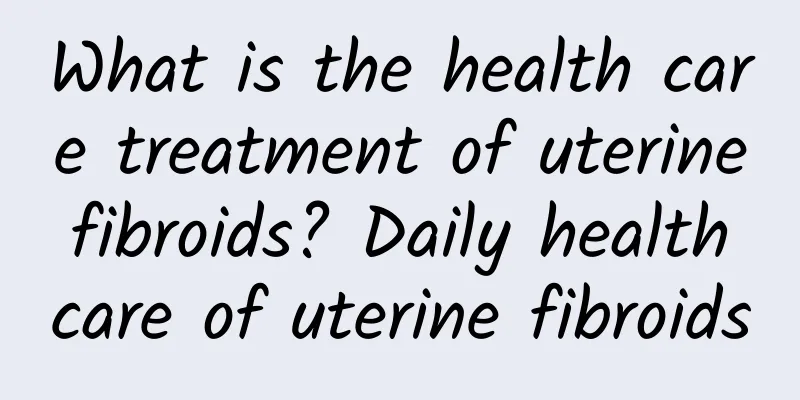
|
What is the health care treatment of uterine fibroids? Daily health care of uterine fibroids Uterine fibroids are one of the most common benign tumors in women. Although they do not cause serious health problems in most cases, some women still want to undergo effective health care treatments due to the discomfort of the symptoms. So, what is the health care treatment for uterine fibroids? This article will answer your questions from three aspects: diet health care, exercise health care, and psychological health care. Diet and health care: related to health Diet plays a vital role in the health care and treatment of uterine fibroids. First of all, the diet should be balanced and contain sufficient nutrients. For example, protein-rich foods, such as fish, lean meat, beans and soy products, can help reduce the size of fibroids and inhibit their growth. In addition, antioxidants such as vitamin C and vitamin E can effectively prevent the occurrence and recurrence of uterine fibroids. Regular intake of foods rich in these vitamins in daily diet, such as citrus fruits, red dates, apples, onions, ginger, garlic, etc., is beneficial to the health care and treatment of uterine fibroids. Sports and health: Move your body Balanced exercise is also crucial for the health care and treatment of uterine fibroids. Appropriate exercise can improve blood circulation and increase the body's metabolic rate, which helps the absorption and disappearance of uterine fibroids. For example, aerobic exercise such as brisk walking, swimming, jogging, etc. can not only reduce the symptoms of fibroids, but also relieve pain and stress. In addition, gentle exercises such as yoga, Tai Chi, and abdominal breathing are also good choices for daily health care of uterine fibroids, which can help regulate the body's endocrine system and slow down the growth of fibroids. Mental health: Relieve stress The health care treatment of uterine fibroids includes not only physical care, but also psychological care. Stress and anxiety may cause endocrine disorders in the body, which will have a negative impact on the health of uterine fibroids. Therefore, maintaining a good mental state is an important part of daily health care for uterine fibroids. You can relieve stress and maintain inner peace and relaxation through leisure activities, music therapy, reading, etc. Conclusion: Health care treatment for uterine fibroids is a relatively mild treatment method that can be performed in daily life and plays a role in auxiliary treatment. Through dietary adjustment, moderate exercise and psychological stress relief, it can help slow down the growth of fibroids and the discomfort of symptoms, improve the body's immune ability, and thus improve overall health. Please consult a professional doctor before undergoing these health care treatments and develop a reasonable treatment plan based on your own situation. |
Recommend
Specialized hospital for the treatment of congenital absence of vagina
With the increasing number of patients with conge...
Pelvic effusion Delayed menstruation
Pelvic effusion Delayed menstruation If it is con...
Treatment of vulvar pain and abnormal vaginal discharge
Vulvar pain accompanied by abnormal vaginal disch...
Is it a big deal if a woman has sex with a condom 20 days after an abortion?
It is usually not recommended for women to have s...
Experts introduce the clinical symptoms of uterine fibroids
Uterine fibroids are a common gynecological tumor...
How many days can conservative treatment of ectopic pregnancy kill the embryo?
Conservative treatment is adopted for female ecto...
What equipment do you need to hunt fat in summer?
Summer is approaching again, and it is also the t...
Get rid of the misunderstanding of vulvar leukoplakia treatment
What are the misunderstandings in the treatment o...
Analysis of nursing care for patients with bacterial vaginosis
Bacterial vaginosis is a STD that is different fr...
Abortion surgery review examination items
Abortion is common. If women do not want to have ...
Prevention and care knowledge of pelvic inflammatory disease
Pelvic inflammatory disease not only brings a lot...
What causes backache during ectopic pregnancy? Is it caused by blocked fallopian tubes?
Ectopic pregnancy is actually a relatively common...
Health killer: chronic cervicitis
Chronic cervicitis is often developed from acute ...
Conspiracy theory of surrounding pigs to save American cows? Chen Baoji: Impossible
Just as Taiwan was in the midst of an uproar over...
Scientific diet is helpful for relieving women's dysmenorrhea
Dysmenorrhea is very common in our lives. Most wo...
